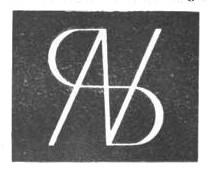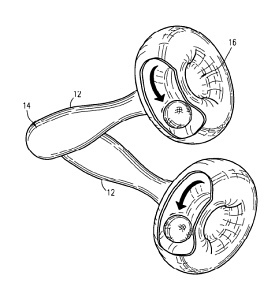
I send you what I regard as one of the most remarkable signatures ever devised by a writer. It is one which I have seen on hundreds of Government papers at Washington, D.C., where the man who uses it was for some years Expert Computer of the U.S. Coast and Geodetic Survey and Astronomer of the Carnegie Institution. His name is Herman S. Davis, and he writes it as here shown. This signature is easily made with two swift strokes of the pen, and is not a mere monogram of initials, for it contains the full name, H.S. Davis, and also the year, month, and day of his birth — namely, 8.6.68. It has the further remarkable quality of being so symmetrical as to read exactly the same viewed upside down. — Mr. Russell Lang, Pittsburg, Pa., U.S.A.
— Strand, December 1908




